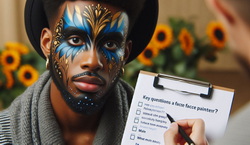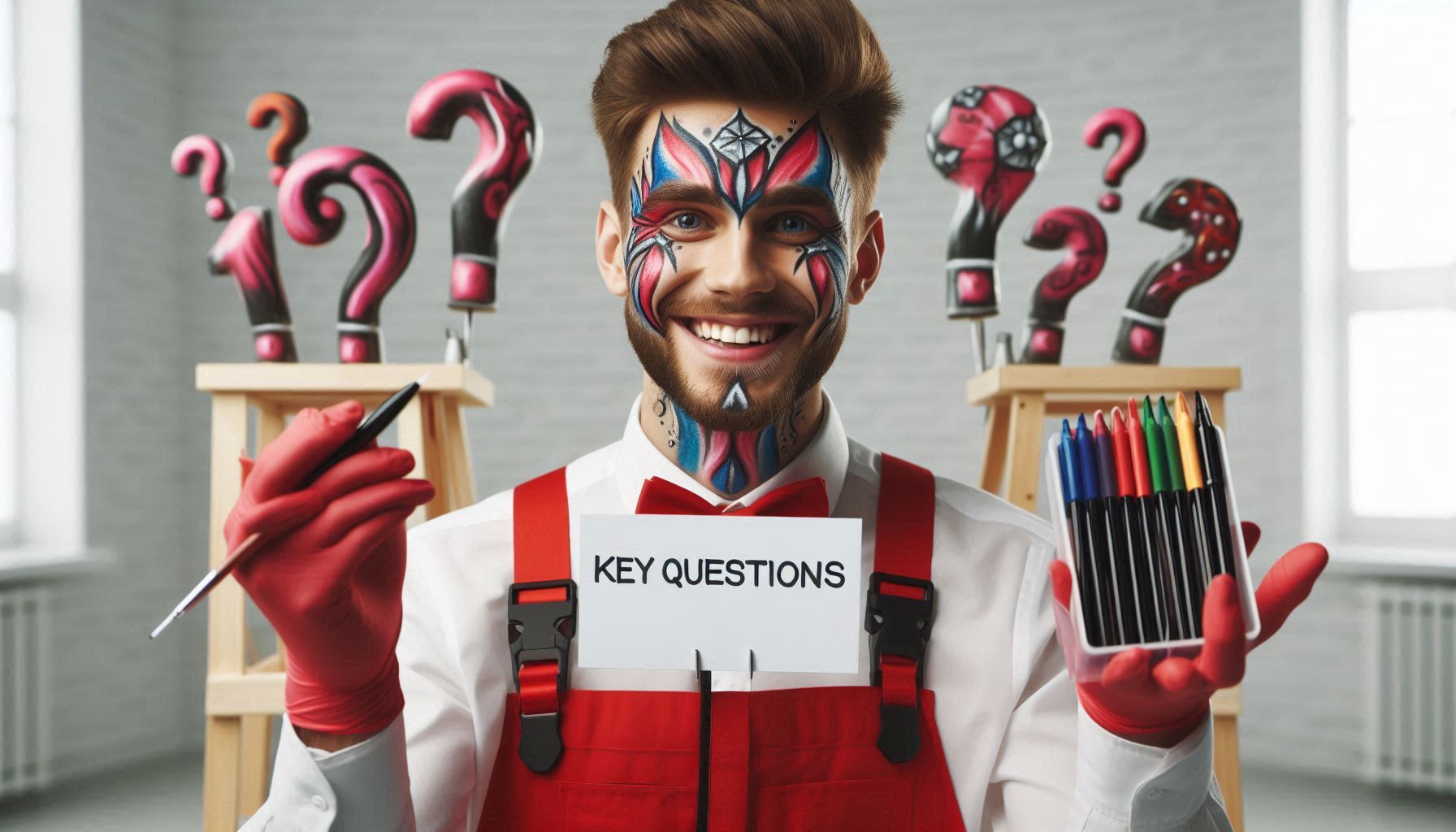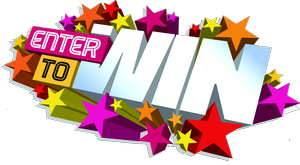Key Questions a Face Painter Should Ask Event Planners Before Booking an Event
Booking a face painting gig can be an exciting opportunity for any artist, but ensuring a smooth and successful experience requires clear communication with the event planner. Asking key questions upfront helps you understand the event’s requirements, prepare appropriately, and avoid surprises. Below is a comprehensive guide outlining the essential questions a face painter should ask before confirming a booking.
1. Event Details
Understanding the basics of the event is crucial to tailor your services and plan accordingly. Begin by gathering the following details:
What is the date, time, and duration of the event? Knowing the exact schedule allows you to confirm your availability and plan your setup and takedown times. It also ensures you allocate enough time for travel and preparation.
What type of event is it? Is it a birthday party, festival, corporate family day, or community fair? Different types of events may require different approaches, from the complexity of designs to the way you interact with attendees.
What is the theme of the event? If the event has a theme (e.g., superheroes, carnival, or animals), you can prepare designs that align with it, enhancing the experience for attendees and showcasing your professionalism.
2. Audience Information
Knowing your audience helps you prepare for the number of participants and their preferences.
How many children (or participants) are expected? This helps you determine how much time you’ll need for each participant and whether you can handle the crowd alone or need additional support.
What is the age range of the children? Younger children may prefer simple designs like flowers or stars, while older kids may request more intricate patterns. Tailoring your designs to the age group ensures everyone enjoys the experience.
Will there be adults interested in face painting? Face painting isn’t just for kids—adults may want to join in the fun too! Knowing this in advance lets you prepare versatile designs that appeal to all ages.
3. Venue Information
Understanding the venue setup ensures you bring the right equipment and can adapt to the event’s location.
Where is the event located? Confirm the address and any parking or access information to avoid delays. If it’s an outdoor location, ask about the availability of shade or protection from the elements.
What type of space will be provided for face painting? Will you have a dedicated booth, a shared table, or a designated corner? Knowing this helps you decide what equipment to bring, such as tables, chairs, or a tent.
Is there access to electricity or water? While face painting doesn’t typically require electricity, access to water can be helpful for cleaning brushes and sponges.
4. Logistics and Setup
Clarify the logistical details to streamline your setup and avoid miscommunication.
What time should I arrive to set up? Arriving early allows you to set up your workstation, test your materials, and be ready when the event begins.
What is the expected duration of face painting? This determines how many designs you can complete and ensures your availability aligns with the event’s schedule.
What is the event’s schedule of activities? Understanding the flow of the event helps you anticipate busy periods and prepare for downtime.
5. Safety and Policies
Safety is a top priority when working with children and large crowds. Addressing these concerns upfront avoids potential issues.
Are there any specific health or safety protocols to follow? Some events may have guidelines regarding hygiene, such as sanitizing equipment or wearing masks.
Will there be a first aid station on-site? While rare, allergic reactions or accidents can happen. Knowing where to direct participants in case of an issue is essential.
Are there any restrictions on face painting materials? Some venues or parents may prefer specific types of face paints, such as vegan or hypoallergenic products. Confirming this ensures you meet their expectations.
6. Budget and Payment
Discussing payment terms upfront avoids confusion and ensures both parties are on the same page.
What is the budget for face painting? Confirming the budget ensures your rates align with the event planner’s expectations.
How will payment be handled? Determine whether payment will be made upfront, after the event, or in installments. Clarify accepted payment methods, such as cash, check, or digital transfers.
Is a deposit required? Many face painters require a deposit to secure a booking. If this applies, communicate the terms clearly and provide an invoice or receipt.
7. Promotions and Branding
If the event is public, it may offer opportunities to promote your face painting business.
Can I display signage or business cards at my station? A visible sign or stack of business cards can help you attract future clients.
Can I take photos of my work for promotional purposes? Always seek permission before taking and sharing photos of participants. Some parents or event organizers may have privacy concerns.
Will the event provide promotion for my services? In some cases, event planners may include your name or business in their promotional materials, increasing your visibility.
8. Contingency Plans
Events don’t always go as planned, so it’s wise to prepare for unexpected situations.
What is the cancellation policy? Confirm what happens if the event is canceled or rescheduled. Having a clear cancellation policy protects your time and effort.
What happens in case of bad weather (for outdoor events)? If the event is outdoors, ask about contingency plans for rain or extreme heat.
Will there be security or staff assistance? Knowing whether event staff will be available to assist with crowd control can help you manage long lines and ensure a smooth process.
9. Additional Services
Exploring opportunities for additional services can add value to the event and increase your earnings.
Are there other entertainers or activities at the event? Coordinating with other vendors ensures your services complement the overall entertainment lineup.
Would you like themed designs or a custom menu? Offering a curated list of designs that match the event’s theme can enhance the experience for attendees.
Would you like glitter tattoos or other add-ons? Some clients may be interested in additional services like glitter tattoos or balloon twisting, providing an opportunity to upsell.
10. Communication and Follow-Up
Establishing clear communication helps build trust and ensures both parties are aligned.
Who is my main point of contact? Having a designated contact person makes it easy to address questions or issues during the event.
What is the best way to communicate before the event? Determine whether the planner prefers email, phone calls, or text messages for updates and confirmations.
After posing key questions you should offer a follow-up after the event? Offering to provide feedback or share photos can leave a positive impression and open the door to future bookingsAsking these questions before booking an event ensures that you, as a face painter, are well-prepared and aligned with the event planner’s expectations. Clear communication not only enhances the event experience for attendees but also helps you build a professional reputation, paving the way for future opportunities. By addressing all aspects of the event—from logistics and safety to audience preferences and payment—you can create a seamless and enjoyable experience for everyone involved.






